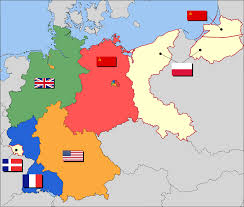I had occasion to be in Poland this past week and thought I would check out the site of the Battle of Tannenberg, the site of an important victory in August 1914 of the German Empire over the Russian Empires. 2014 is the centenary of the outbreak of World War 1, a catastrophe from which we have not yet recovered, spiritually at any rate. My interest had been piqued by Solzhenitsyn’s August 1914 and more recently by Sleepwalkers, How Europe went to war in 1914, by Christopher Clark.
I had been to Slovenia in an earlier European visit and had visited the scene of the Battle of Caporetto (Kobarid to the Slovenians) where the Austro-Hungarians and Germans had routed the Italians off the mountaintops of the Julian Alps in 1917. There was a museum in the town of Kobarid and an Italian war mausoleum for their dead. Below is the war museum in Kobarid, Slovenia.

Accordingly I thought that perhaps there might be something similar in northern Poland, resembling what I had found in Slovenia. After all, the Slovenians were a part of the Austro-Hungarian Empire, then folded into Yugoslavia, and now on their own. Rather like the Poles in fact. Under German domination, then Communist domination, and now on their own, quite successfully.
Think again.
There had been an immense war monument built by the Germans to mark their victory in WW1.
This is what remains of it today.
You are looking at the same place. The depression in the ground is what marks the spot of the German war memorial. The rubble of its towers is used by local farmers as fill for emplacing their culverts. Nothing. Gone with the wind.
After World War 2, the Russians moved the Belorussian and Ukrainian borders 100 miles westward, displacing the Poles, who were forced to move into Prussian lands, which had always been predominantly ethnically German.
So the Germans were forced out at gunpoint on the pitiless road of refugees in the winter of 1945, and the displaced Poles, themselves forced out from eastern lands at gunpoint by Ukrainians and Belorussians, occupied their houses.
As Oban said to me, “ethnic cleansing is the attempt to overcome history with demography”. It appears to work. Look at this map. This is Prussia and Pomerania before World War 1. Prussia in Prussian blue.
Below is a map of Germany after World War 1.
Below is a map of Germany after World War 2.
Cream colour marks the territory that Stalin assigned to the Poles.
Wikipedia describes the process:
By 1950, a total of at least 12 million Germans had fled or been expelled from east-central Europe into the areas which would become post-war Germany and Allied-occupied Austria. Some sources put the total at 14 million, including migrants to Germany after 1950 and the children born to the expellees. During the Cold War, the West German government also considered as expellees about 1 million Nazi administrators and colonists settled in territories conquered by Nazi Germany in east and west Europe. The largest numbers came from territories ceded to Poland and the Soviet Union (about 7 million) and from Czechoslovakia (about 3 million). This was the largest of all the post-war expulsions from Central and Eastern Europe, which displaced more than 20 million people in total. The events have been variously described as population transfer, ethnic cleansing or genocide.
Here is the new sign that marks where the German war memorial to Tannenberg was:
A little sign at the end of an agricultural lane near Olsztynek, in northern Poland is all that marks the battle site.
Shelley’s Ozymandias came to mind:
I met a traveller from an antique land
Who said: “Two vast and trunkless legs of stone
Stand in the desert. Near them, on the sand,
Half sunk, a shattered visage lies, whose frown,
And wrinkled lip, and sneer of cold command,
Tell that its sculptor well those passions read
Which yet survive, stamped on these lifeless things,
The hand that mocked them and the heart that fed:
And on the pedestal these words appear:
‘My name is Ozymandias, king of kings:
Look on my works, ye Mighty, and despair!’
Nothing beside remains. Round the decay
Of that colossal wreck, boundless and bare
The lone and level sands stretch far away”.
In the case of Tannenberg, there remains not even the shattered image, but just a sign at the end of the farm lane saying: “Ozymandias used to be here”.






